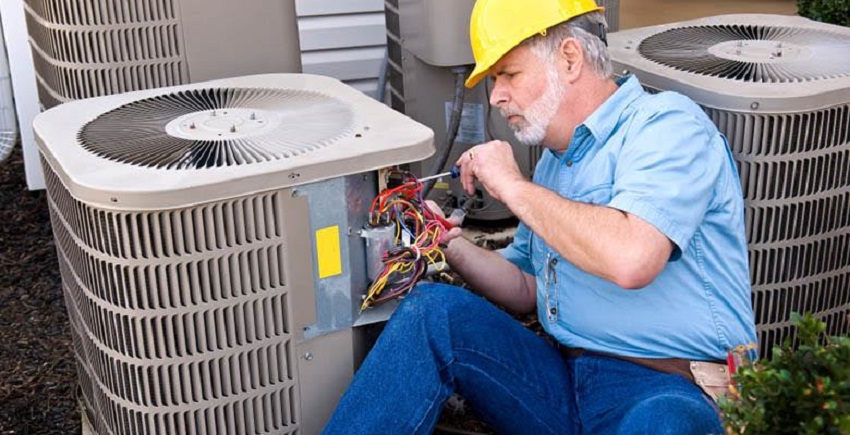If you are experiencing problems with your heating or air conditioning system, the first step is to inspect the components. If any of them are damaged or worn, this will affect the system’s performance. Checking for worn belts, bearings, and oiling motors are some of the basic maintenance tasks you should regularly perform.
Squealing Noises
Squealing noises can signal problems with your furnace or air conditioner. While many squealing noises are normal during operation, a loud squealing noise is usually a sign that something needs to be fixed. A worn or loose belt is the most common cause of a furnace or air conditioner squealing noise. If you suspect this is the cause of a squealing noise, contact experts in heating and air repair near me to determine and repair the problem.
A broken fan or compressor motor is a common cause of squealing noises in heating and air conditioning systems. A loud buzzing noise can signal a problem with an air conditioning system. A damaged capacitor or circuit breaker can cause a buzzing noise. If the noise is loud and continuous, you should call a qualified HVAC technician to inspect it.
If the squealing noises keep coming back, you may have a worn fan belt. This belt connects the fan to the motor. However, it can also become brittle over time due to humidity levels. It is important to have this belt replaced if it starts to make squealing noises. Squealing noises may also indicate that the compressor is under too much pressure. When this happens, the compressor could explode.
Clogged Filters
Dirty air filters can signify the air quality inside your home. In addition, dirty air filters can signify energy efficiency, causing your HVAC system to work harder than it needs to. Changing your air filter filters is an important step to prevent these problems.
Not only will dirty air filters affect the quality of the air in your home, but they can also cause expensive repair bills. In severe cases, a clogged filter can jam the blower assembly, leading to overheating or even fire in your equipment. In addition, a dirty filter will prevent the system from efficiently removing heat and cold air, resulting in higher utility bills.
The best solution to a clogged air filter is to replace it regularly. However, if you don’t want to deal with clogged air filters, get an HVAC professional to do it. They’ll be able to check and replace the filters, and they’ll also be able to fix any problems they uncover.
Leaking Refrigerant
A leaky refrigerant is dangerous to your health. Exposure to the coolant can cause dizziness, shortness of breath, and poor concentration. In addition, high levels of refrigerant can cause loss of consciousness and seizures. Therefore, it’s essential to have your heating and air conditioning system repaired.
The refrigerant inside an air conditioner absorbs heat from the air and allows it to exchange air. However, refrigerant can leak due to wear and tear, defects, and damages. When it leaks, it can cause a high electric bill and damage the compressor. Therefore, it is important to repair a leak immediately to avoid recurring costs and problems. In most cases, a trained technician can identify and fix the problem and recharge your system according to manufacturer specifications.
Leaking refrigerant can signify other problems with your heating and air conditioning system. For example, it can cause your power bill to spike since the system must work harder to keep you comfortable. It can also lead to corroded heating and air conditioning components.
Ineffective Thermostat
If your HVAC system isn’t reading the temperature right, you may be paying more than necessary for energy bills. A broken thermostat can affect the entire system’s efficiency by misreading the temperature and forcing it to overwork. A replacement thermostat will fix this issue and save you money in energy costs. The placement of the thermostat can also affect its accuracy. Keep it at least 150 cm above the floor and away from drafts and intense heat for best results.
A faulty thermostat may also result in short cycling. Short cycling occurs when the air conditioner or heating unit repeatedly turns without completing a cycle. This causes inefficient heating or cooling and negatively impacts your comfort. A faulty thermostat might also show the wrong temperature or have a faulty circuit board. In either case, it’s time to replace the thermostat. Some thermostats may also need a new battery.
Another sign that your thermostat is ineffective is a dead screen. A screen with a dead sign means that the unit isn’t receiving any messages from the HVAC unit. As a result, the HVAC unit will be unable to function properly unless the thermostat is reset.




